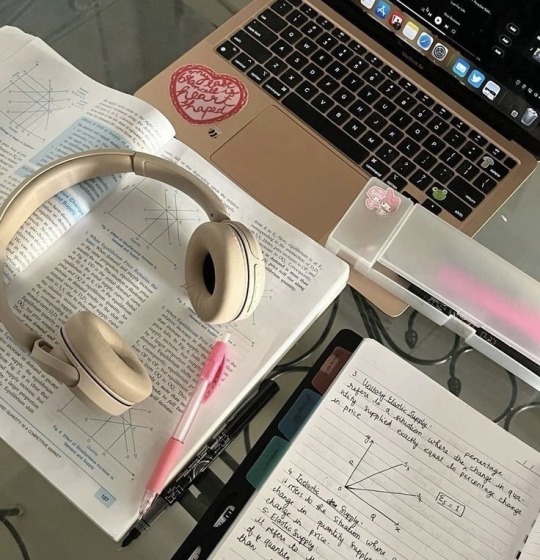#Development Tips
Explore tagged Tumblr posts
Text
Accurately estimating the time and cost of software development is crucial for project success. Here are key tips to help you make precise estimates: 1. Break down tasks into smaller, manageable units. 2. Use historical data and industry benchmarks. 3. Involve the development team in the estimation process. 4. Consider potential risks and uncertainties. 5. Regularly review and update your estimates as the project progresses.
2 notes
·
View notes
Text
When a Character Is Grieving Someone They Never Got to Say Goodbye To
✧ They talk about the person in past tense… then correct themselves. Then stop talking entirely.
✧ They touch things that belonged to the person like they’re fragile, sacred, about to disappear.
✧ They hoard the last voicemail, last message, last anything. Play it. Don’t play it. Just knowing it exists hurts enough.
✧ They leave something untouched, an empty seat, a half-packed bag, a coffee order that isn’t theirs.
✧ They get irrationally angry when someone else seems to be “moving on.” As if forgetting is betrayal.
✧ They don’t let themselves cry all at once. It comes in pieces. Like they’re afraid too much grief will drown them.
✧ They over-apologize. For being quiet. For being distant. For not being okay.
✧ They become hyper-aware of time, dates, anniversaries, time zones, the exact moment everything ended.
✧ They get superstitious. Ritualistic. As if doing things "right" might reverse something.
✧ They smile when they talk about the person. But it’s brittle. And it never quite touches their eyes.
#writing#writerscommunity#writer on tumblr#writing tips#writing advice#character development#writer tumblr#writblr#writing help#oc character#am writing#writeblr#writebrl#writer community#writer stuff#writer things#writers of tumblr#writing community
17K notes
·
View notes
Text
When your Character...
Gets into: A Fight ⚜ ...Another Fight ⚜ ...Yet Another Fight
Hates Someone ⚜ Kisses Someone ⚜ Falls in Love
Calls Someone they Love ⚜ Dies / Cheats Death ⚜ Drowns
is...
A Ballerina ⚜ A Child ⚜ Interacting with a Child ⚜ A Cheerleader
A Cowboy ⚜ A Genius ⚜ A Lawyer ⚜ A Pirate ⚜ A Spy
A Wheelchair User ⚜ A Zombie ⚜ Beautiful ⚜ Dangerous ⚜ Drunk
Funny ⚜ In a Coma ⚜ In a Secret Society ⚜ Injured ⚜ Shy
needs...
A Magical Item ⚜ An Aphrodisiac ⚜ A Fictional Poison
A Coping Strategy ⚜ A Drink ⚜ A Medicinal Herb ⚜ A Mentor
Money ⚜ A Persuasion Tactic ⚜ A Quirk ⚜ To be Killed Off
To Become Likable ⚜ To Clean a Wound ⚜ To Self-Reflect
To Find the Right Word, but Can't ⚜ To Say No ⚜ To Swear
loves...
Astronomy ⚜ Baking ⚜ Cooking ⚜ Cocktails ⚜ Food ⚜ Oils
Dancing ⚜ Fashion ⚜ Gems ⚜ Herbal Remedies ⚜ Honey
Mushrooms ⚜ Mythology ⚜ Numbers ⚜ Perfumes
Roses ⚜ Sweets ⚜ To Argue ⚜ To Insult ⚜ To Kiss
To Make False Claims ⚜ Wine ⚜ Wine-Tasting ⚜ Yoga
has/experiences...
Allergies ⚜ Amnesia ⚜ Bereavement ⚜ Bites & Stings
Bruises ⚜ Caffeine ⚜ CO Poisoning ⚜ Color Blindness
Facial Hair ⚜ Fainting ⚜ Fevers ⚜ Food Allergies
Food Poisoning ⚜ Fractures ⚜ Frostbite ⚜ Hypothermia
Injuries ⚜ Jet Lag ⚜ Kidnapping ⚜ Manipulation ⚜ Mutism
Pain ⚜ Paranoia ⚜ Poisoning ⚜ More Pain & Violence
Scars ⚜ Trauma ⚜ Viruses ⚜ Wounds
[these are just quick references. more research may be needed to write your story...]
Writing Resources PDFs
#requested#writing reference#character development#writeblr#dark academia#spilled ink#writing prompts#writing inspiration#writing ideas#creative writing#compilation#fiction#light academia#literature#writers on tumblr#writing prompt#poets on tumblr#writing tips#writing advice#writing resources#updated: december 2024
25K notes
·
View notes
Text
20 Ways to Show Extreme Fear in Your Writing
As I dive into researching signs of fear for my horror WIP, I wanted to share some of the most compelling and visceral reactions I’ve come across. Whether you’re writing a chilling scene or crafting a character’s panic, these 20 signs of fear can help bring tension and realism to your story.
Physical Reactions
Hyperventilating — sucking in air but never feeling like it’s enough
Chest tightens — feels like a weight or hands pressing down
Limbs shaking violently, knees buckling
Complete loss of muscle control — collapsing or unable to stand
Cold sweat soaking through clothes
Heart hammering so hard they feel it in their throat or head
Tunnel vision — the world narrowing down to one terrifying focal point
Ringing in the ears or sudden deafness, like the world drops away
Dizziness / feeling faint / vision blurring
Dry mouth — unable to speak or even scream
Uncontrollable Behavior
Screaming / sobbing / gasping — involuntary vocal outbursts
Panic run — bolting without thinking, tripping over everything
Clawing at their own skin / chest / throat — like trying to escape their body
Begging / pleading out loud even if no one’s there
Repeating words or phrases — “No, no, no” / “This isn’t happening”
Hiding instinctively — diving under tables, closets, or corners
Desperate grabbing — reaching for someone, anything solid
Loss of bladder or bowel control (for extreme terror)
Total mental shutdown — frozen, slack-jawed, staring blankly
Memory blackout — later can’t recall what happened during the worst moment
#writing tips#writing advice#character development#writers on tumblr#writeblr#creative writing#fiction writing#writerscommunity#writing#writing help#writing resources#horror writing#ai assisted
10K notes
·
View notes
Text
Writing Tips Master Post
Edit: Some posts may be deleted
Character writing/development:
Character Arcs
Making Character Profiles
Character Development
Comic Relief Arc
Internal Conflict
Character Voices
Creating Distinct Characters
Creating Likeable Characters
Writing Strong Female Characters
Writing POC Characters
Building Tension
Writing Grumpy x Sunshine Tropes
Writing Sexuality & Gender
Writing Manipulative Characters
Writing Mature Young Characters
Plot devices/development:
Intrigue in Storytelling
Enemies to Lovers
Alternatives to Killing Characters
Worldbuilding
Misdirection
Things to Consider Before Killing Characters
Foreshadowing
Narrative (+ how to write):
Emphasising the Stakes
Avoid Info-Dumping
Writing Without Dialogue
1st vs. 2nd vs. 3rd Perspective
Fight Scenes (+ More)
Transitions
Pacing
Writing Prologues
Dialogue Tips
Writing War
Writing Cheating
Writing Miscommunication
Writing Unrequited Love
Writing a Slow Burn Btwn Introverts
Writing Smut
Writing Admiration Without Attraction
Writing Dual POVs
Writing Unreliable Narrators
Worldbuilding:
Worldbuilding: Questions to Consider
Creating Laws/Rules in Fantasy Worlds
Book writing:
Connected vs. Stand-Alone Series
A & B Stories
Writer resources:
Writing YouTube Channels, Podcasts, & Blogs
Online Writing Resources
Outlining/Writing/Editing Software
Translation Software for Writing
Writer help:
Losing Passion/Burnout
Overcoming Writer's Block
Fantasy terms:
How To Name Fantasy Races (Step-by-Step)
Naming Elemental Races
Naming Fire-Related Races
How To Name Fantasy Places
Ask games:
Character Ask Game #1
Character Ask Game #2
Character Ask Game #3
Miscellaneous:
Writing Tips
Writing Fantasy
Miscommunication Prompts
Variety in Sentence Structure (avoiding repetition)
#masterlist#masterpost#writeblr#writing#writing tips#writing advice#writing help#writing resources#author resources#writer resources#creative writing#character writing#character development#plot development#narrative#book writing#writers block#writer stuff#writer things#fantasy writing#writer ask game#deception-united
29K notes
·
View notes
Text
10 ways to make working from home work for you

Let's start with a big thank-you to all those essential workers who continue to work outside the home during the coronavirus pandemic, often in difficult or dangerous conditions. For others fortunate enough to be able to continue work, now from the relative safety of their own homes, we offer some tips and advice around working from home. It can carry risks to both the privacy/security of information and to your mental and physical health.
0 notes
Text
Writing Worksheets & Templates
will update this every few weeks/months. alternatively, here are all my tagged Writing Worksheets & Templates
Chapter Outline ⚜ Character- or Plot-Driven Story
Death & Sacrifice ⚜ Magic & Rituals ⚜ Plot-Planning
Editing: Sentence Check ⚜ Writing Your Novel: 20 Questions
Tension ⚜ Thought Distortions ⚜ What's at Stake
Character Development
50 Questions ⚜ Backstory ⚜ Character Creation
Antagonist; Villain; Fighting ⚜ Protagonist & Antagonist
Character: Change; Adding Action; Conflict
Character: Creator; Name; Quirks; Flaws; Motivation
Character Profile (by Rick Riordan) ⚜ Character Sheet Template
Character Sketch & Bible ⚜ Interview your Character
Story-Worthy Hero ⚜ "Well-Rounded" Character Worksheet
Worldbuilding
20 Questions ⚜ Decisions & Categories ⚜ Worksheet
Setting ⚜ Dystopian World ⚜ Magic System (AALC Method)
Templates: Geography; World History; City; Fictional Plant
References: Worldbuilding ⚜ Plot ⚜ Character ⚜ Writing Resources PDFs
all posts are queued. send questions/requests here.
#writing tips#writeblr#dark academia#spilled ink#writers on tumblr#fiction#creative writing#character development#character building#original character#character design#booklr#writing prompts#novel#worldbuilding#writing inspiration#writing ideas#bookblr#writing reference#writing prompt#writing resources
10K notes
·
View notes
Text
btw curating a beautiful environment is about honouring yourself. when you choose to surround yourself with things that are well-made, thoughtfully designed, and meaningful, you affirm that your daily experience matters. investing in quality over convenience sends a subconscious message of self-worth that is completely foundational to building a better life.
#it girl energy#becoming that girl#lucky girl syndrome#it girl#self improvement#self development#personal excellence#level up#self care#vanilla girl#girl tips
6K notes
·
View notes
Text
youtube channels to motivate you this semester



♡ abao in tokyo - study with me’s & playlists
♡ advika singh - study & productivity vlogs
♡ allie c. - medical school vlogs
♡ carrot td - study with me’s
♡ celine - study with me’s
♡ deaana - medical school, study with me’s, stationary, etc.
♡ dear mimi - study vlogs
♡ dia - medical student vlogs
♡ dr. rachel southard, do - medical school & residency vlogs & talks
♡ emily feng - medical school vlogs
♡ emilystudying - dental school & study vlogs
♡ emma grace - nursing school vlogs
♡ emmalilyn - study with me’s
♡ ginny - study vlogs
♡ hyobin - medical student vlogs
♡ leighton sanders - nursing vlogs
♡ lucky penny - study with me’s
♡ lunardazes. - uni study vlogs
♡ madi’s nursing journey - nursing school & nursing vlogs
♡ mango oatmilk - study with me’s
♡ maria silva - study & hospital interning vlogs
♡ merve - study with me’s
♡ mishujo - study & productive vlogs
♡ nada - study & productivity vlogs
♡ ray hon - study with me’s
♡ sab yang - medical school & study vlogs
♡ sean study - study with me’s
♡ sierra lyn - nursing vlogs
♡ studymd - study with me’s
♡ study to success - stationary, study with me’s, study hacks, etc.
♡ tani study - study with me’s
♡ yours truly, chloe - study vlogs
♡ yulma - study with me’s
#girlblog#girlblogger#girlblogging#that girl#dream girl#it girl#self care#self love#glow up#becoming that girl#self help#self improvement#self development#study#studying#studyblr#college#rory gilmore#study blog#studyspo#study aesthetic#study motivation#wonyoungism#study tips#study inspiration#studyinspo#hot girls read#paris geller#gilmore girls#clean girl
14K notes
·
View notes
Text

Essential Best Practices for Successful Mobile App Development
Discover key strategies for mobile app development success. Learn essential best practices to enhance your apps' performance, user experience, and security.
#mobile app development#best practices#app success#strategy#performance optimization#user experience#app security#development tips#modern apps#techniques
0 notes
Text
Principles and Laws of Magic for Fantasy Writers
Fundamental Laws
1. Law of Conservation of Magic- Magic cannot be created or destroyed, only transformed.
3. Law of Equivalent Exchange- To gain something, an equal value must be given.
5. Law of Magical Exhaustion- Using magic drains the user’s energy or life force.
Interaction and Interference
4. Law of Magical Interference- Magic can interfere with other magical effects.
6. Law of Magical Contamination- Magic can have unintended side effects.
8. Law of Magical Inertia- Magical effects continue until stopped by an equal or greater force.
Resonance and Conditions
7. Law of Magical Resonance- Magic resonates with certain materials, places, or times.
9. Law of Magical Secrecy- Magic must be kept secret from the non-magical world.
11. Law of Magical Hierarchy- Different types of magic have different levels of power and difficulty.
Balance and Consequences
10. Law of Magical Balance- Every positive magical effect has a negative consequence.
12. Law of Magical Limitation- Magic has limits and cannot solve every problem.
14. Law of Magical Rebound- Misused magic can backfire on the user.
Special Conditions
13. Law of Magical Conduits- Certain objects or beings can channel magic more effectively.
15. Law of Magical Cycles- Magic may be stronger or weaker depending on cycles (e.g., lunar phases).
17. Law of Magical Awareness- Some beings are more attuned to magic and can sense its presence.
Ethical and Moral Laws
16. Law of Magical Ethics- Magic should be used responsibly and ethically.
18. Law of Magical Consent- Magic should not be used on others without their consent.
20. Law of Magical Oaths- Magical promises or oaths are binding and have severe consequences if broken.
Advanced and Rare Laws
19. Law of Magical Evolution- Magic can evolve and change over time.
20. Law of Magical Singularities- Unique, one-of-a-kind magical phenomena exist and are unpredictable.
Unique and Imaginative Magical Laws
- Law of Temporal Magic- Magic can manipulate time, but with severe consequences. Altering the past can create paradoxes, and using time magic ages the caster rapidly.
- Law of Emotional Resonance- Magic is amplified or diminished by the caster’s emotions. Strong emotions like love or anger can make spells more powerful but harder to control.
- Law of Elemental Harmony- Magic is tied to natural elements (fire, water, earth, air). Using one element excessively can disrupt the balance and cause natural disasters.
- Law of Dream Magic- Magic can be accessed through dreams. Dreamwalkers can enter others’ dreams, but they risk getting trapped in the dream world.
- Law of Ancestral Magic- Magic is inherited through bloodlines. The strength and type of magic depend on the caster’s ancestry, and ancient family feuds can influence magical abilities.
- Law of Symbiotic Magic- Magic requires a symbiotic relationship with magical creatures. The caster and creature share power, but harming one affects the other.
- Law of Forgotten Magic- Ancient spells and rituals are lost to time. Discovering and using forgotten magic can yield great power but also unknown dangers.
- Law of Magical Echoes- Spells leave behind echoes that can be sensed or traced. Powerful spells create stronger echoes that linger longer.
- Law of Arcane Geometry- Magic follows geometric patterns. Spells must be cast within specific shapes or alignments to work correctly.
- Law of Celestial Magic- Magic is influenced by celestial bodies. Spells are stronger during certain astronomical events like eclipses or planetary alignments.
- Law of Sentient Magic- Magic has a will of its own. It can choose to aid or hinder the caster based on its own mysterious motives.
- Law of Shadow Magic- Magic can manipulate shadows and darkness. Shadowcasters can travel through shadows but are vulnerable to light.
- Law of Sympathetic Magic- Magic works through connections. A spell cast on a representation of a person (like a doll or portrait) affects the actual person.
- Law of Magical Artifacts- Certain objects hold immense magical power. These artifacts can only be used by those deemed worthy or who possess specific traits.
- Law of Arcane Paradoxes- Some spells create paradoxes that defy logic. These paradoxes can have unpredictable and often dangerous outcomes.
- Law of Elemental Fusion- Combining different elemental magics creates new, hybrid spells with unique properties and effects.
- Law of Ethereal Magic- Magic can interact with the spirit world. Ethereal mages can communicate with spirits, but prolonged contact can blur the line between life and death.
- Law of Arcane Symbiosis- Magic can bond with technology, creating magical machines or enchanted devices with extraordinary capabilities.
- Law of Dimensional Magic- Magic can open portals to other dimensions. Dimensional travelers can explore alternate realities but risk getting lost or encountering hostile beings.
- Law of Arcane Sacrifice- Powerful spells require a sacrifice, such as a cherished memory, a personal item, or even a part of the caster’s soul.
#writer#writing#writer things#writerblr#writerscorner#writing inspiration#writing tips#author#writers and poets#ao3 writer#writeblr#fantasy writer#sci fi and fantasy#writing inspo#writing resources#dnd campaign#dnd character#character development#original character#amwriting#writers community#writer stuff#writing blog#writers block#writerscommunity#worldbuilding#world building#fantasy series
6K notes
·
View notes
Text
more words for characterization (pt. 4)
Age
adolescent, afresh, ancient, antiquarian, antique, big, childish, crude, doddering, elderly, fresh, full-grown/full-fledged, green, hoary, immemorial, infant/infantile, junior, late, medieval, mint, modish, new, novel, older, old-fashioned, originally, outdated/out-of-date, passé, quaint, refreshing, secondhand, stale, state-of-the-art, undeveloped, up-to-date, well-preserved, youthful
Appearance
adorable, aesthetic/esthetic, artistic, beautiful, comely, crisp, dapper, decorative, desirable, dressy, exquisite, eye-catching, fancy, fetching, flawless, glorious, good-looking, graceful, grungy, hideous, homely, irresistible, natty, ornate, plain, pretty, refreshing, resplendent, seductive, spiffy, striking, stylish, ugly, unbecoming, willowy, with-it
Genuineness
abstract, actually, alias, apocryphal, apparently, arty, authentic, baseless, beta, bona fide, circumstantial, concrete, contrived, credible, deceptive, delusive, dreamy, ecclesiastical, empirical/empiric, enigmatic/enigmatical, ersatz, ethereal, factual, fallacious, fantastic, far-fetched, fictitious, foolproof, fraudulent, good, hard, historical, honest-to-God, illusory/illusive, imitative, indisputable, invisible, just, lifelike, made-up, magic/magical, make-believe, matter-of-fact, metaphysical, monstrous, mystic/mystical, mythical/mythological, nonexistent, openhearted, ostensibly, paranormal, physical, positive, pretended, quack, quite, realistic, right, sincerely, specious, spurious, supernatural, synthetic, tangible, true, unearthly, unnatural, unthinkable, unvarnished, unworldly, valid, veritable, wholehearted/whole-hearted, wrong
Movement
ambulatory, brisk, clumsy, fleet, fluent, frozen, gawky, graceless, immobile, indolent, itinerant, leisurely, lifeless, liquid, lithe, maladroit, migrant/migratory, motionless, moving, nomadic, oafish, passive, pendulous/pendent, portable, restless, roundabout, sedentary, slow, speedy, static, vibrant, winding
Style
adorable, baroque, becoming, black, bold, brassy, cheap, class, classy, contemporary, country, cultural, dashing, dowdy, eat high on the hog, exquisite, featureless, flamboyant, floral, flowery, formless, futuristic, garish, gay, glamorous, gorgeous, grand, graphic, hot, improvised, informal, innovative, kinky, loud, lush, luxurious, mean, meretricious, modish, neat, new, obsolete, old-fashioned, orderly, ornamental, ostentatious, outdated/out-of-date, palatial, picturesque, plush, posh, prevalent, quaint, refined, resplendent, rustic, scruffy, sharp, simple, sleazy, smart, snazzy, spiffy, spruce, stately, state-of-the-art, stylish, swank/swanky, tacky, tasteless, tousled, two-bit, unbecoming, unworldly, up-to-date, vogue
NOTE
The above are concepts classified according to subject and usage. It not only helps writers and thinkers to organize their ideas but leads them from those very ideas to the words that can best express them.
It was, in part, created to turn an idea into a specific word. By linking together the main entries that share similar concepts, the index makes possible creative semantic connections between words in our language, stimulating thought and broadening vocabulary. Writing Resources PDFs
Source ⚜ Writing Basics & Refreshers ⚜ On Vocabulary
#character development#vocabulary#langblr#writeblr#writing reference#spilled ink#creative writing#dark academia#setting#writers on tumblr#poets on tumblr#poetry#literature#writing tips#writing prompt#writing#words#lit#studyblr#fiction#light academia#characterization#writing resources
4K notes
·
View notes
Text
Emotional Walls Your Character Has Built (And What Might Finally Break Them)
(How your character defends their soft core and what could shatter it) Because protection becomes prison real fast.
✶ Sarcasm as armor. (Break it with someone who laughs gently, not mockingly.) ✶ Hyper-independence. (Break it with someone who shows up even when they’re told not to.) ✶ Stoicism. (Break it with a safe space to fall apart.) ✶ Flirting to avoid intimacy. (Break it with real vulnerability they didn’t see coming.) ✶ Ghosting everyone. (Break it with someone who won’t take silence as an answer.) ✶ Lying for convenience. (Break it with someone who sees through them but stays anyway.) ✶ Avoiding touch. (Break it with accidental, gentle contact that feels like home.) ✶ Oversharing meaningless things to hide real depth. (Break it with someone who asks the second question.) ✶ Overworking. (Break it with forced stillness and the terrifying sound of their own thoughts.) ✶ Pretending not to care. (Break it with a loss they can’t fake their way through.) ✶ Avoiding mirrors. (Break it with a quiet compliment that hits too hard.) ✶ Turning every conversation into a joke. (Break it with someone who doesn’t laugh.) ✶ Being everyone’s helper. (Break it when someone asks what they need, and waits for an answer.) ✶ Constantly saying “I’m fine.” (Break it when they finally scream that they’re not.) ✶ Running. Always running. (Break it with someone who doesn’t chase, but doesn’t leave, either.) ✶ Intellectualizing every feeling. (Break it with raw, messy emotion they can’t logic away.) ✶ Trying to be the strong one. (Break it when someone sees the weight they’re carrying, and offers to help.) ✶ Hiding behind success. (Break it when they succeed and still feel empty.) ✶ Avoiding conflict at all costs. (Break it when silence causes more pain than the truth.) ✶ Focusing on everyone else’s healing but their own. (Break it when they hit emotional burnout.)
#writer on tumblr#writing tips#writing advice#character development#writer tumblr#writblr#writing help#writing#writerscommunity#am writing#tumblr writing community#on writing#writeblr#writer community#writer problems#writer things#writer stuff#writer#writerslife#writing life#writing inspiration
19K notes
·
View notes
Text
⋆ Small achievable goals to change your entire life in 2025 🌸⋆.ೃ࿔.⊹𝄞⨾𓍢ִ໋



ׂ╰┈➤ Start cooking more of your meals at home. Incorporate more healthy ingredients in your meals and/or disguise them in delicious recipes!
ׂ╰┈➤ Start working out regularly, at the gym, in the park or just in your bedroom. Any form of activity counts!!
ׂ╰┈➤ Start drinking more water!!!
ׂ╰┈➤ Establish an easy morning and evening routine that you can do everyday
ׂ╰┈➤ Never skip skincare or basic hygiene like showering or brushing your teeth
ׂ╰┈➤ Fix your sleep schedule and sleep 7-9 hours a night
ׂ╰┈➤ Choose to spend less time on your phone and more time outside/with family and friends.
ׂ╰┈➤ Uninstall harmful social media apps
ׂ╰┈➤ Start being productive everyday – read, journal or practice your hobbies more often!
ׂ╰┈➤ Take yourself on solo dates! Everybody underestimates this so much, but I promise it makes such a difference in your mood. Go to the spa or salon, take sunset walks, read at the corner cafe while enjoying a warm pastry!!
ׂ╰┈➤ Start romanticising your life! Candle lit dinners with your family, spa and rest days, buying flowers or that cute dress or doing face masks while reading at night could make such a great difference!!
ׂ╰┈➤ Start complimenting people more often and saying kind things to strangers!
ׂ╰┈➤ Clear out your wardrobe! Find your desired style and get some cute key pieces that go well with anything. Donate old clothes that you aren't wearing anymore!
ׂ╰┈➤ Of course, looks ARE NOT everything in life, but you should try to look as put together as possible in every situation. Use clothes and hairstyles that fit you well, wear perfume, jewelery and accessories, try to have well maintained nails and skin
ׂ╰┈➤ Become well organised by always preparing for a situation ahead of time
ׂ╰┈➤ Experiment with cooking or baking, with your make up/hairstyle, and try out new places or hobbies too!
ׂ╰┈➤ Stop worrying about other people and their opinions. Cut out all the negativity in your life, they might be ruining your progress!
ׂ╰┈➤ Try to become more confident each day, being confident makes the biggest difference in your life of them all!
ׂ╰┈➤ Stop being so hard on yourself! Life is not a race so please remember to enjoy every moment and take it easy and slowly. Results will not be visible immediately but change is on the way and you know it too. Good luck!! <33
#wellness girl#female hysteria#romanticise your life#self improvement#self development#self love#becoming that girl#that girl aesthetic#it girl aesthetic#wellnessjourney#girl tips#healthylifestyle#healthy girl#dream girl#health and wellness#dream girl journey#clean girl aesthetic#clean girl#pink pilates princess#pink blog#mental health#ed recovery#glow up#girlhood#girlblogging#this is what makes us girls#feminism#girl hysteria#romantizing life#healthyliving
3K notes
·
View notes
Text
20 Compelling Positive-Negative Trait Pairs
Here are 20 positive and negative trait pairs that can create compelling character dynamics in storytelling:
1. Bravery - Recklessness: A character is courageous in the face of danger but often takes unnecessary risks.
2. Intelligence - Arrogance: A character is exceptionally smart but looks down on others.
3. Compassion - Naivety: A character is deeply caring but easily deceived due to their trusting nature.
4. Determination - Stubbornness: A character is persistent in their goals but unwilling to adapt or compromise.
5. Charisma - Manipulativeness: A character is charming and persuasive but often uses these traits to exploit others.
6. Resourcefulness - Opportunism: A character is adept at finding solutions but is also quick to exploit situations for personal gain.
7. Loyalty - Blind Obedience: A character is fiercely loyal but follows orders without question, even when they're wrong.
8. Optimism - Denial: A character remains hopeful in difficult times but often ignores harsh realities.
9. Humor - Inappropriateness: A character lightens the mood with jokes but often crosses the line with their humor.
10. Generosity - Lack of Boundaries: A character is giving and selfless but often neglects their own needs and well-being.
11. Patience - Passivity: A character is calm and tolerant but sometimes fails to take action when needed.
12. Wisdom - Cynicism: A character has deep understanding and insight but is often pessimistic about the world.
13. Confidence - Overconfidence: A character believes in their abilities but sometimes underestimates challenges.
14. Honesty - Bluntness: A character is truthful and straightforward but often insensitive in their delivery.
15. Self-discipline - Rigidity: A character maintains strong control over their actions but is inflexible and resistant to change.
16. Adventurousness - Impulsiveness: A character loves exploring and trying new things but often acts without thinking.
17. Empathy - Overwhelm: A character deeply understands and feels others' emotions but can become overwhelmed by them.
18. Ambition - Ruthlessness: A character is driven to achieve great things but willing to do anything, even unethical, to succeed.
19. Resilience - Emotional Detachment: A character can endure hardships without breaking but often seems emotionally distant.
20. Strategic - Calculative: A character excels at planning and foresight but can be cold and overly pragmatic in their decisions.
These pairs create complex, multi-dimensional characters that can drive rich, dynamic storytelling.
---
+ If you find my content valuable, consider Support This Blog on Patreon!
#writing tips#writing advice#character development#writers on tumblr#writeblr#creative writing#fiction writing#writerscommunity#writing#writing help#writing resources#ai assisted
22K notes
·
View notes